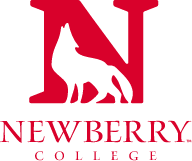Op-ed: What is Juneteenth? Why Do We Celebrate It?
by Carlton Kinard '16 | Muller Center Program Coordinator - June 19, 2023

Juneteenth commemorates the date, June 19, 1865, two-and-a-half years after the Emancipation Proclamation and two months after the end of the Civil War, when hundreds of thousands of enslaved men and women in Texas finally learned they had been freed. Juneteenth is an important milestone in American culture. After President Abraham Lincoln signed the Emancipation Proclamation on January 1, 1863, freeing our enslaved ancestors in the Confederacy, the news didn’t reach parts of the American South until after the Civil War ended (April 1865). In fact, more than 250,000 enslaved people in Texas didn’t receive the news until June 19, 1865. Yes, you read that right; a quarter-of-a-million people continued to suffer in slavery for two-and-a-half years after it was outlawed. You may be thinking, since it was a different time with limited communication outreach to citizens, such as internet and computers, that may have been the reason. Well, not exactly!
On the evening of April 14, when President Abraham Lincoln was shot by John Wilkes Booth while attending a concert at the Ford’s Theatre, news of the president’s passing the next day spread quickly thereafter. In other words, important news could reach the entire country, if the people in charge of local newspapers chose to report it. Finally, on June 19, 1865, Major General Gordon Granger arrived in Galveston, Texas, to inform the Lone Star State that slavery was outlawed in formerly Confederate states. Unfortunately, the path to liberation didn’t end there.
When Union soldiers delivered the news, the ex-Confederate mayor of Galveston openly disregarded Granger’s orders and forced freed people back to work. On the local plantations, it was up to the enslavers to decide when and how to announce the news to enslaved men and women. Many enslavers waited until the harvesting process was complete so they could make a profit off their harvest and keep control over the enslaved. Even “legally” free Black men and women continued to be terrorized, shot, and hanged for minor “offenses” like expecting fair treatment from their employers or wanting to have the same basic rights as their White counterparts. As a nation, we are still battling the age-old curse of racism. People of color are still on the front lines fighting for their rights and freedom.
In 1872, seven years after Granger announced slavery was outlawed in formerly Confederate states, a group of Black ministers and businessmen raised enough money to purchase 10 acres of park land in Texas. The land, now known as Emancipation Park, offered surrounding Black communities a safe place they could celebrate Juneteenth. Many Americans have visited the site over the years to commemorate sacrifices made throughout the African American culture.
Juneteenth has been celebrated with a sense of jubilation and the need to educate and empower those who are in our communities. Parties, barbecues, and church services were held, and there was a focus on how to pursue the so-called “American Dream.” Former enslaved men and women were freed to do things that they were restricted from doing such as praying, gathering, reading, and writing. The history of Juneteenth is not as recognized now as it once was due to limited knowledge and information in educational textbooks. With more awareness and more willingness to engage in research, many are determined to bring it back to the forefront. As a nation, we typically celebrate the Fourth of July during the summer. However, from an African American history standpoint, while we were independent as a nation, our ancestors weren’t independent, we weren’t free as a people. So, there has been a lot of conversation over the years about how we’re celebrating the American holiday, but not fully celebrating the day we were truly freed from slavery. As we continue to broaden our knowledge about Juneteenth and pay homage to our ancestors for all the many sacrifices they’ve made, it is vital that we continue to pass down our history to our younger generations. So they, too, will understand the ultimate sacrifices made for us to celebrate our freedom.
For some, it's eating barbecue, shooting fireworks, gathering at a cookout, and drinking hibiscus tea. This tea is a cure to help lower blood pressure, a tradition that symbolizes perseverance and honors the blood that was shed by African Americans. Some traditional foods that are cooked during the Juneteenth holiday are black-eyed peas and pork, which is a representation of wealth. Some other food for prosperity and side dishes consist of corn, cornbread, collard greens, cabbage, potatoes, yams and sweet potatoes. Like the New Year’s celebration in the African American community, many may recognize the foods that are cooked during Juneteenth. It’s all about celebrating good luck and wishing for the best! It is equally important that we as a culture and nation find healthier options, such as vegan and vegetarian. Fish fries, crab boils, and other seafood options are great ways to utilize a healthier way of eating.
Now that more Americans are out and about, the City of Newberry was excited to offer the Third Annual Newberry Juneteenth Festival last weekend. The Newberry Juneteenth committee consists of Councilwoman Jackie Holmes, Councilman Carlton Kinard, Barbara Chapman, Sheila Brown, Margo Whitener, Mike Raiford, Tomekia Means, Yolanda Hair and Denise Graham. All are welcome to participate in the annual festival, celebrating Black-owned businesses, enjoying live music, delicious food, a talent showcase and car show, and visiting Juneteenth history displays at the Newberry Opera House. Even though many folks may not be familiar with the Juneteenth celebrations coming forth, we are hopeful that all Newberrians will enjoy a fun-filled day with family and friends.


 Close
Close